Creating a Feng Shui bedroom layout is about more than just arranging furniture—it’s about cultivating an environment that promotes relaxation, harmony, and restful sleep.
Feng Shui, an ancient Chinese practice, involves designing spaces to optimize the flow of energy, or “chi,” to enhance health and well-being.
By incorporating Feng Shui principles into your bedroom, you can transform it into a serene sanctuary that supports your physical and emotional needs!
Choose Calming Colors

Calming colors are a cornerstone of Feng Shui. Soft hues like blues, greens, lavenders, and neutrals are excellent choices as they promote a peaceful atmosphere. Blue is known for its calming effects and is associated with clarity and tranquility. Green represents renewal and is connected to nature, fostering balance and healing.
Pastel shades and neutral tones like beige, ivory, and light gray provide a soothing backdrop that can help reduce stress and anxiety. To enhance the calming effect, incorporate these colors through wall paint, bedding, and decor items.
Position the Bed Commandingly

The position of your bed is crucial in Feng Shui. Placing the bed diagonally opposite the door but not directly in line with it ensures that you can see the door without being directly in its path.
This position, known as the “command position,” helps you feel more secure and in control, which is essential for a restful night’s sleep. The headboard should be against a solid wall, providing support and stability. Avoid positioning the bed under a window or beams, as this can create a feeling of vulnerability.
Use Symmetry with Nightstands
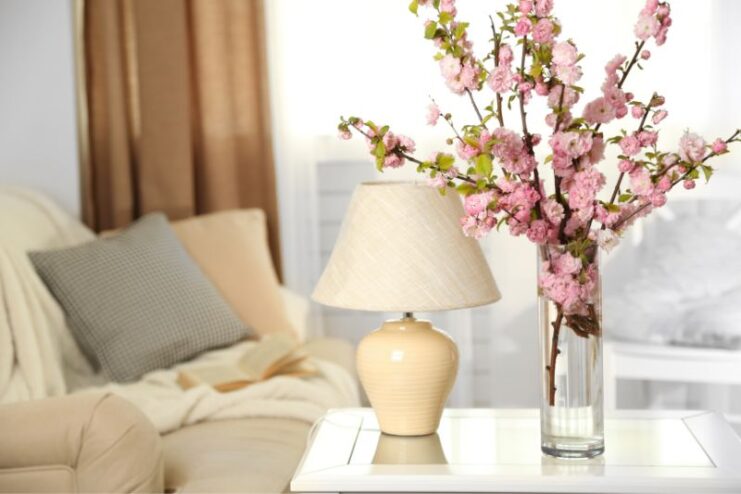
Symmetry in the bedroom fosters a sense of balance and harmony. Matching nightstands on either side of the bed help to create a balanced energy flow. These nightstands should be at an equal height and hold similar items, such as lamps, books, or personal items.
This balance is especially important if you share the bedroom with a partner, as it promotes equality and harmony in the relationship. Keep the nightstands free of clutter to maintain a calm and organized space.
Declutter and Minimize

Clutter can disrupt the flow of energy and create a chaotic atmosphere, making it difficult to relax and sleep. In Feng Shui, it’s essential to keep the bedroom clean and organized. Remove unnecessary items and keep surfaces clear.
Invest in storage solutions like under-bed bins, closet organizers, and storage benches to keep the space tidy. Decluttering not only improves the physical space but also has a positive impact on your mental state, making it easier to unwind and rest.
Opt for Natural Materials

Natural materials such as wood, cotton, wool, and bamboo create a connection to nature, which is a fundamental principle in Feng Shui. These materials are not only visually pleasing but also contribute to a healthier environment by reducing exposure to synthetic chemicals.
Choose wooden furniture, cotton bedding, and wool rugs to enhance the natural feel of your bedroom. These materials promote warmth, comfort, and a sense of grounding, all of which are conducive to a restful sleep.
Incorporate Soft Lighting
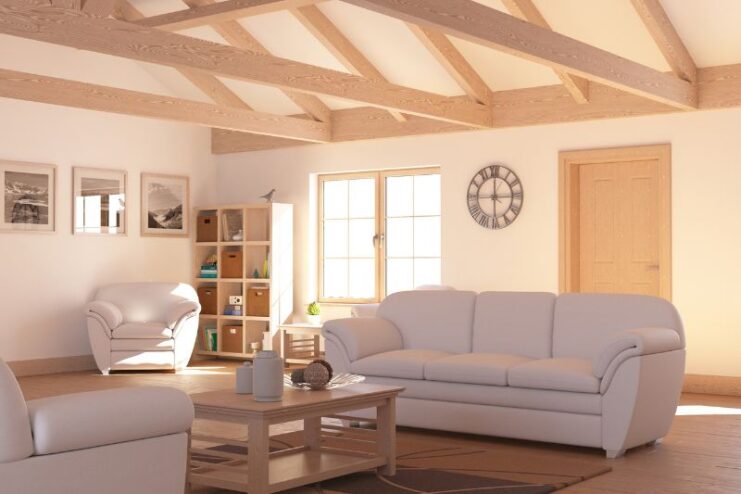
Lighting plays a significant role in setting the mood of your bedroom. Soft, warm lighting creates a relaxing and inviting atmosphere. Use dimmable lamps or lights with adjustable settings to control the light intensity. Avoid harsh, bright lights that can be too stimulating.
Consider using bedside lamps with soft shades, fairy lights, or wall sconces to add a gentle glow to the room. Natural light during the day is also important, so make sure your bedroom has adequate window treatments to control light levels.
Avoid Mirrors Facing the Bed
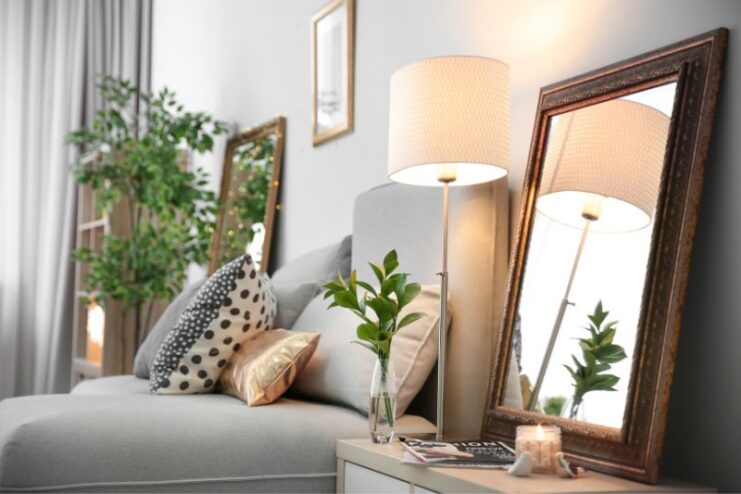
In Feng Shui, mirrors are thought to reflect energy and can disrupt sleep if placed facing the bed. The reflection can create a sense of restlessness and prevent you from fully relaxing. If you have a mirror in your bedroom, position it so that it does not reflect the bed.
If repositioning is not possible, cover the mirror at night with a decorative cloth or screen. This practice helps to calm the energy and creates a more peaceful environment for sleep.
Introduce Plants Wisely
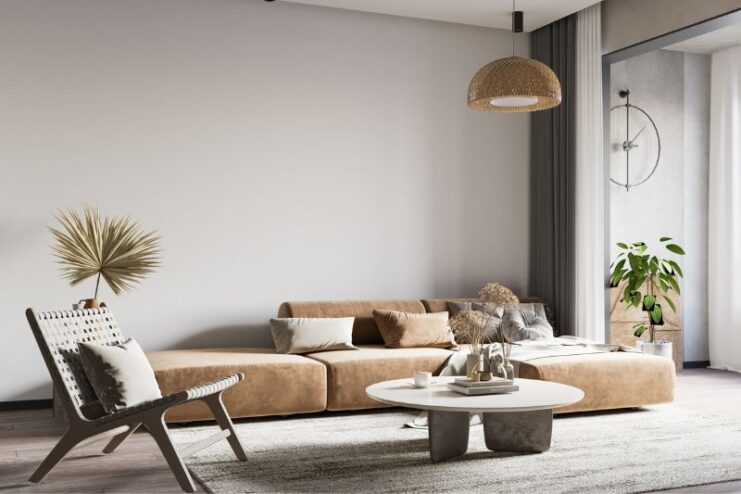
Plants can enhance the energy in your bedroom by adding a touch of nature and improving air quality. Choose air-purifying plants like peace lilies, snake plants, or Boston ferns, which are known for their ability to filter toxins from the air.
Be mindful of the types of plants you select. Avoid plants with sharp leaves or thorns, as they can create negative energy. Place plants strategically around the room, ensuring they do not overwhelm the space or obstruct pathways.
Ensure Good Airflow
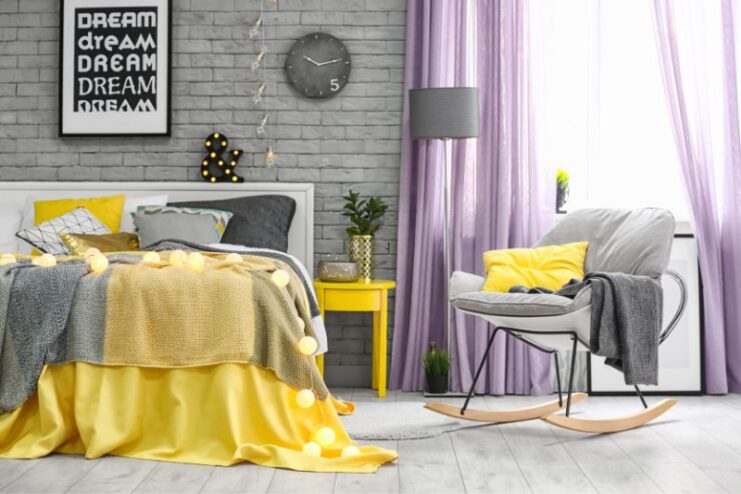
Good airflow is essential for maintaining a healthy and restful bedroom environment. Stale air can lead to poor sleep quality and health issues. Ensure your bedroom is well-ventilated by opening windows regularly to let in fresh air.
If opening windows is not an option, use an air purifier to maintain good air quality. Additionally, avoid placing furniture in a way that blocks airflow, and consider using ceiling fans to help circulate air.
Create a Restful Sanctuary

Your bedroom should be a sanctuary dedicated to rest and relaxation. Keep it free of electronic devices like TVs, computers, and exercise equipment, which can be distracting and emit energy that disrupts sleep. Establish a clear boundary between your sleeping area and activities related to work or entertainment.
Use your bedroom solely for sleep and intimacy to preserve its serene energy. Incorporate elements that promote relaxation, such as soft bedding, comfortable pillows, and calming scents like lavender or chamomile.
Related Posts:
- Best Feng Shui Colors for Enhancing Your Home’s Energy
- How to Arrange Your Office Desk for Career Success -…
- How to Increase Oxygen Levels While Sleeping:…
- How to Get Better Grades in High School: Pro Tips…
- Neon Signs vs. Traditional Lighting: Which is Better…
- The Ultimate Guide to Sea Urchin Taste: What to…












